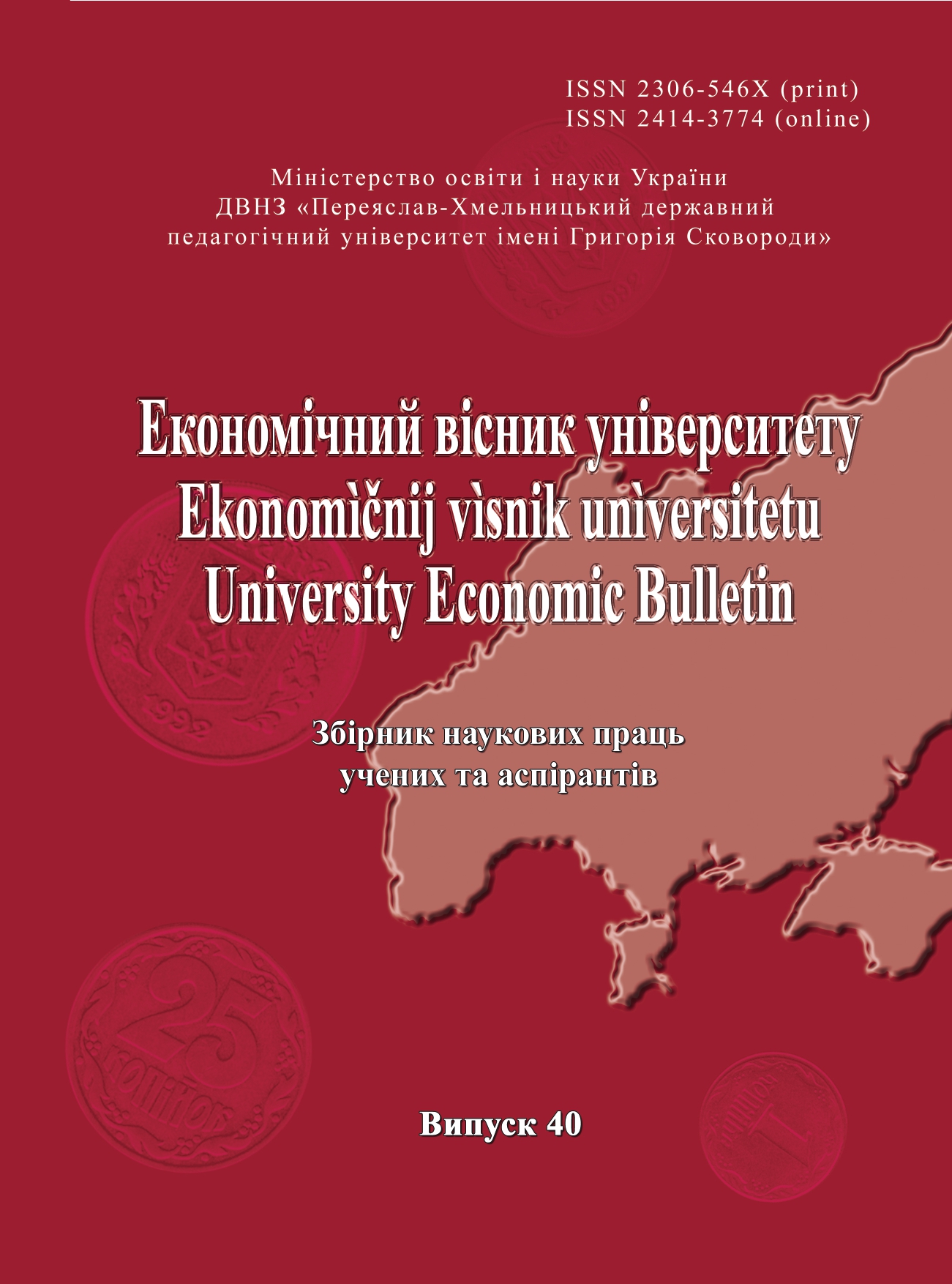Формирование корпоративной культуры: мировой опыт и украинские реалии
Formation of corporate culture: world experience and Ukrainian realities
Author(s): Inna Demuz, Alla Zlenko, Elena IsaikinaSubject(s): National Economy, Supranational / Global Economy, Business Economy / Management, Business Ethics
Published by: Університет Григорія Сковороди в Переяславі
Keywords: corporate culture; management system; staff; enterprises; companies; goals and mission of organization culture; strategies; traditions; rituals; values;
Summary/Abstract: Relevance of research topic. Modern business conditions help to consider the concept of «corporate culture» as one of the main elements of staff management system. The corporate culture is of great importance today as a set of features that determine the individuality of each organization. Organization culture is a system of values, a philosophy shared by all employees of the organization. The philosophy of the organization is made clear to all workers of the tradition, symbols, rituals, legends, which they are guided in everyday activities by virtue of their inner conviction. Ingredients of the organization's culture are the names of the brands of products it produces and the social contacts of employees outside of it (unions, sports teams, etc.). Formulation of the problem. It is impossible to ensure the profitability and success of the organization, relying solely on economic interest and neglecting the potential of cultural capital, the degree of penetration of which in the managerial and economic sphere determines the speed and quality of the organization's movement to a new cycle of development. Corporate culture includes issues of motivation of staff, spiritual and material life of the collective, style of management, influence of the leader's personality, moral standards and material values. Implementation and observance of the principles of corporate culture will make it an effective tool for staffmanagement, preserve the unity in the organization, which in the future will have a beneficial effect on the development of the organization's culture. Analysis of recent research and publications. This problem has become the object of study of a number of researchers. In particular, the scientific works of Apostoliuk O., Balyk O., Bezzemelna T., Hryhorieva O., Zhuk V., Zelena M., Lomachynska I., Malaschenko V., Marynova S., Melnyk P., Skobtseva A., Tarasova O., Fischuk N., Khymych I., ShyshkovaH. and others deserve attention. Identification of unexplored parts of the general problem. At the same time, the problem of the influence of international experience on the formation of the corporate culture of domestic enterprises requires a more detailed study, which determines the relevance of further research in this area. Setting a task, objectives of the study. The purpose and tasks of writing the article is to study examples of successful world corporate cultures, to study the attitude towards corporate culture in Ukraine, further improve the processes of forming the corporate culture of Ukrainian enterprises taking into account the national character. Research methodology. During the writing of the article were used methods of analysis and synthesis, the system approach, statistical analysis, generalization and structuring. Presentation of the main research material. The article analyzes the attitude towards corporate culture in Ukraine, factors of the introduction and functioning of the corporate culture, its typology, determines the reasons for the unsatisfactory state of implementation of the national corporate culture, identifies the best examples of the corporate culture of domestic enterprises. The field of application of results. The research results can be applied in the process of forming the corporate culture of a modern enterprise. Conclusions. Thus, the key factors to be taken into account when forming a corporate culture should be: national features, with their negative and positive characteristics, the need to upgrade the top management through the creation of motivational systems and conditions for the career development of young qualified professionals, the need to improve economic methods management.
Journal: Економічний вісник університету
- Issue Year: 2019
- Issue No: 40
- Page Range: 77-85
- Page Count: 9
- Language: Russian

